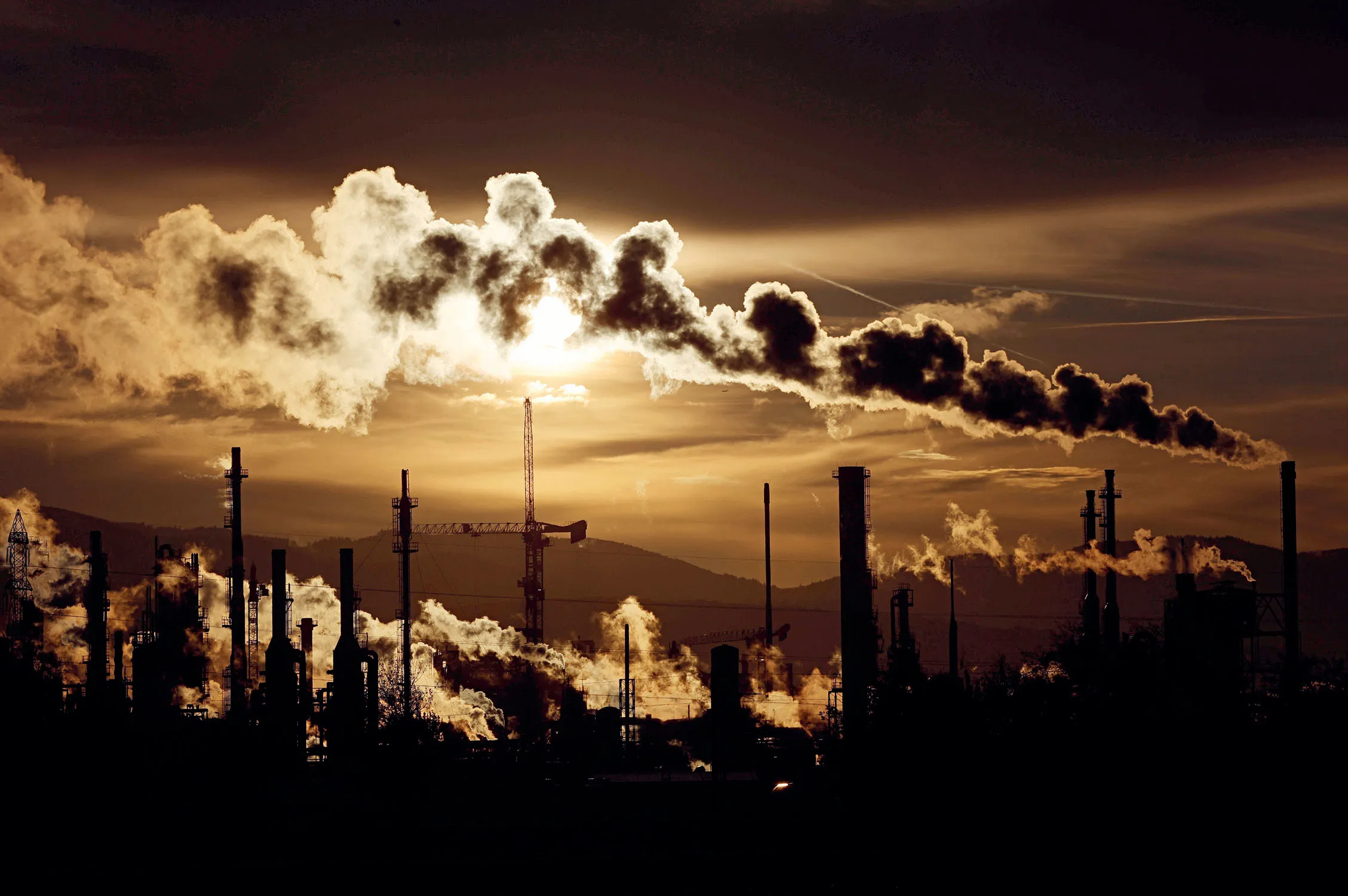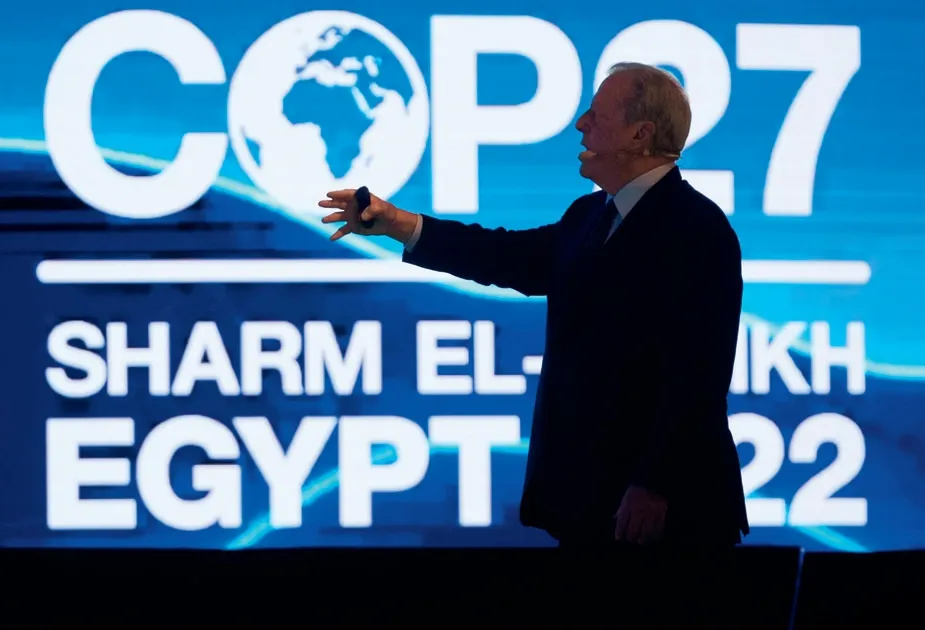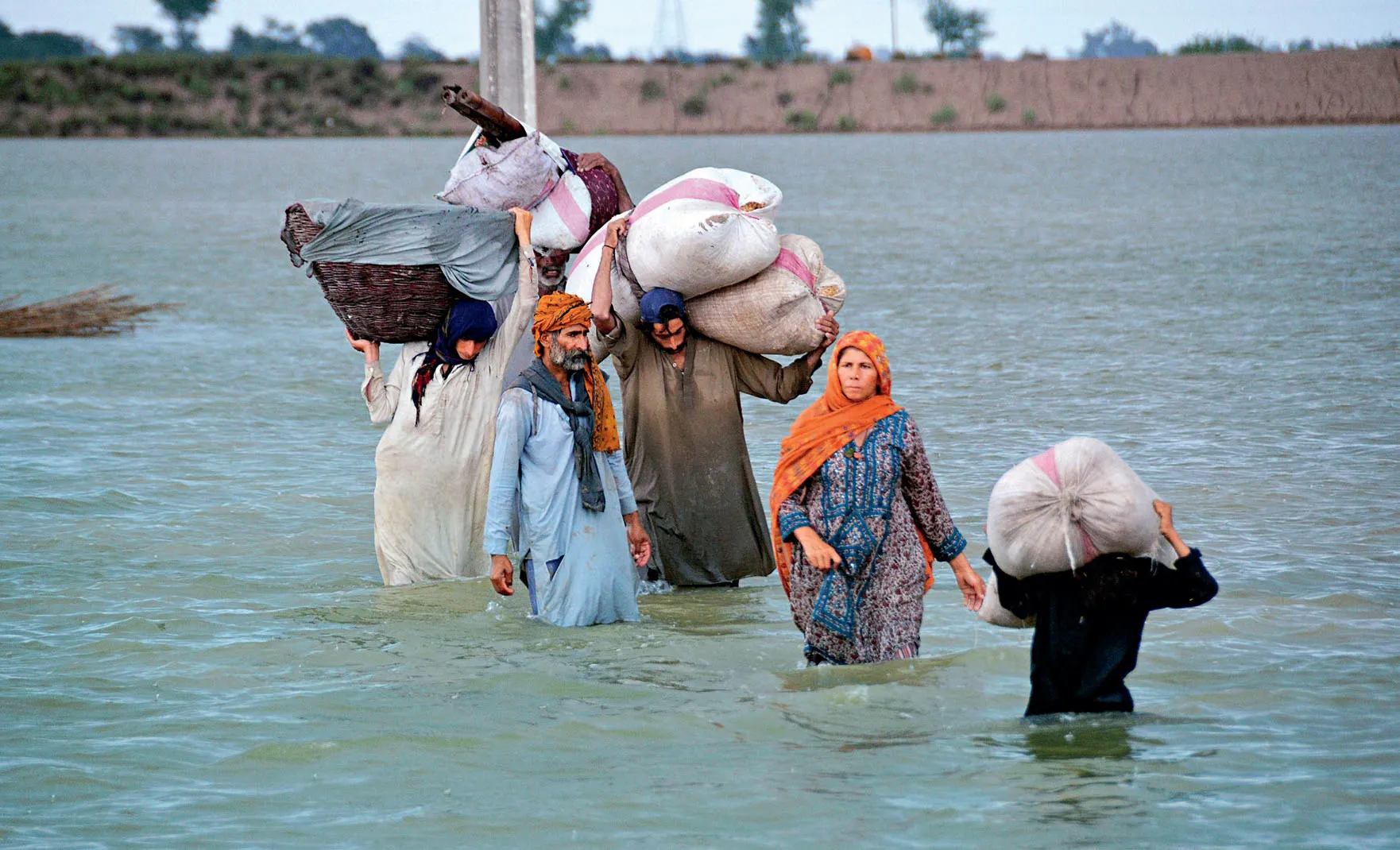Cooling the“Warming War”:Politics and Climate Change
By ROBERT WALKER
To move beyond the symbolism of the Paris Agreement,rich governments must act with altruism not solely out of self-interest.

The Butachimie chemical plant sits in Chalempe,eastern France,on November 8,2022.The European Union finds itself under pressure from within to pause new environmental efforts amid fears they will hurt the economy.
I N its latest report,the World Meteorological Organization confirms what the world had been fearing.There is a 98 percent chance that at least one of the next five years will be the hottest on record.
Moreover,it is more than likely that the average temperature will exceed preindustrial levels by 1.5oC.This is important since higher temperatures for a sustained period may trigger irreversible and multiplicative processes that further disrupt the “harmony between humanity and nature.”This harmony underpins Chinese modernization and China’s aspiration to build a human community with a shared future.
The science underlying climate change is formidably complex.The “short synthesis” of the latest Assessment Report of the Intergovernmental Panel on Climate Change (IPCC),published this year,runs to 83 pages and is written by a team of some 99 scientists and editors.
The messages,though,are clear.Atmospheric,oceanic,and land temperatures are all rising due to human activity with net emissions -the principal cause -continuing to increase,albeit more slowly than before (1.3 percent/year compared to 2.1 percent/year during 2000-2009).Even with reduced emissions achieved through mitigation,temperatures will continue rising requiring society to adapt.Without adaptation,heat-related deaths will increase,cities will be inundated,islands will disappear,crop yields will fall,and fish stocks will decline.More destructive climatic events are inevitable,and food and water insecurity will increase.

Former U.S.Vice President Al Gore speaks during a session at the COP27 climate summit on November 9,2022,in Sharm El-Sheikh,Egypt.
Although the science is increasingly sophisticated,the challenges were already known when the UN Framework Convention on Climate Change was agreed in Rio de Janeiro in 1992.However,it then took 23 years until the U.S.and Chinese governments worked together,to negotiate and reach the Paris Agreement at which countries coalesced around a non-binding goal of limiting global warming to below 2oC and preferably below 1.5oC.The symbolism of the Paris Agreement -the world working together -is,with hindsight,more important than its achievements.Even if every country delivers on the pledges agreed,temperatures will still rise by 2.7oC by 2100,almost double the maximum desirable level.
If the science is complex,so too are the politics.History has bequeathed the world the cruellest of scenarios.Communities and countries worst affected by climate change are those that have contributed least to the problem.They are also typically the poorest and least powerful.
Emissions vary markedly between regions and households.The 10 percent of households emitting the most greenhouse gases release three times more than the half of households that emit the least.Less badly affected by climate change,their affluent governments can afford the relatively minor cost of adaptation.Approximately 3.6 billion people are highly vulnerable to the negative effects of climate change.They are concentrated in low-and lower middle-income countries.
To move beyond the symbolism of the Paris Agreement,rich governments must act with altruism not solely out of self-interest.In 2009,highincome countries agreed to contribute US $100 billion per year by 2020 to assist developing countries adapt to climate change.They have yet to do so and,if they ever do contribute,the true value will have been much reduced by inflation.
Amid rejoicing in 2022,the COP27 Convention on Climate Change,held in Sharm el-Sheikh,decided to introduce a fund for loss and damages caused by climate change.The idea had first been proposed in 1991.Even so,according to Anna Åberg of the London-based Chatham House,agreement was “unexpected,” the result of the G77 and China together advocating change with positive support from civil society.As the G77 was chaired by Pakistan,floods there in 2022 -which inundated over a tenth of the country -may also have been significant.
Agreement and implementation are different.The first meeting of the committee charged with designing the fund was held in Luxor in March.Regrettably,according to the Centre for International Environmental Law,developed countries sought “to keep the conversations centered around the broader funding arrangements that already exists” rather than focusing on the fund itself.The fear is that,as with finance for mitigation and adaptation,they will insist on assistance in the form of loans not grants.This is not altruism.Loans add to the debt burden of recipient countries while increasing the incomes of the developed world.
The U.S.commentor Dr.Eyck Freymann argues that,within the U.S.,there is an emerging consensus that “climate talks are a waste of time.” In support,he cites H.R.McMaster,briefly President Donald Trump’s national security advisor: “In a democracy,people aren’t going to vote to transfer capital to developing countries because we feel guilty that we already had our fair share of carbon emissions.” Altruism ends at national borders.
Freymann explains that,beyond lack of altruism,the U.S.has “weaponized climate.”
The historic unfairness -innocent countries punished for the profitable errors of others -was recognized at the original Rio Conference in 1992.Therefore,the formula of “common but differentiated responsibilities” was devised dividing countries into “Annex II countries” with resources to assist others,and “non-Annex II countries” needing to prioritize development and poverty eradication.
The formula was operationalized in the Kyoto Protocol in 1997.However,by that time the U.S.Senate had unanimously passed the Byrd-Hagel Resolution preventing U.S.participation (President Clinton signed the protocol,but it was never ratified).With the U.S.-then the world’s largest emitter of greenhouse gases -a non-participant,18 years were wasted before the 2015 Paris Agreement.This acknowledged the formula and embraced an agreement on joint emissions reductions agreed by President Xi Jinping and President Barack Obama in 2014.

A displaced family wades through a flooded area after heavy rainfall,in Jaffarabad,a district of Pakistan’s southwestern Baluchistan Province,onAugust 24,2022.
Another four years were lost after President Trump withdrew from the Paris Agreement.Rejoining under the Biden administration,the U.S.’s passive resistance to aiding others has become active.The U.S.argued to defer decisions on a loss and damage fund while the orchestrated demands that China should be included in Annex II as a net financial contributor are,according to the London-based thinktank ODI,unwarranted.Its analysis indicates that “both [China’s] per capita income and its per capita territorial cumulative emissions since the 1990s fall below any Annex II countries”.
But Freymann also explains that the U.S.has turned a defensive war -we will not pay to help climate victims -into an offensive “Warming War” “to drive down global climate emissions while also hobbling China’s economic rise.” Even China’s investment in decarbonization is presented as a threat to the U.S.: “They are doing this to outdo us,economically and diplomatically,” asserted Democratic Senator Sheldon Whitehouse in 2019.
When President Trump withdrew the U.S.from the Paris Agreement,he imposed tariffs on the import of solar panels from China.These “climate weapons” remain in place,ironically making solar energy less affordable in America,restricting demand and curtailing installations.Trump characteristically claimed that “the concept of global warming was created by and for the Chinese in order to make U.S.manufacturing non-competitive”.
Another “weapon”,according to Freymann,is the carbon border adjustment mechanism.This is a form of carbon pricing under which all carbon emitted during the production of imports is assessed and a related tariff imposed.Such a scheme is due to be implemented by the European Union in 2026 and serves as a model,although U.S.Democrats promoted the idea in 2009.A 2021 study by Tsinghua University has suggested that China “would be the most heavily penalized” by the mechanism.
This,though,as Freymann explains,is the intention as confirmed by Todd Stern,a U.S.negotiator for the Paris Agreement: “The very threat of such a tool could have a salutary effect on various countries.China would really not like it.”
While Freymann may accurately describe the Warming War waged by the U.S.,he is guilty of inventing an adversary in China.He acknowledges that “few large countries are more vulnerable to extreme climate change than China” and that China is pursuing an ambitious adaptation strategy including water transfer between river systems,raising 6,000 miles of seawalls and constructing flood basins in its largest cities.
However,he interprets this in terms of geopolitical rivalries arguing that “whichever superpower adapts more effectively to climate change could gain a decisive strategic advantage over the other.”China is not “weaponizing climate.” It is implementing an adaptation strategy designed to make life safer and better for the Chinese population.And,as confirmed by Oxford Institute for Energy Studies,unlike the U.S.,it has been “unwavering in its support for the Paris Agreement.”

